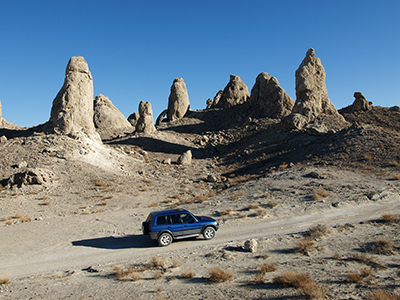SEMA supports managed care of the nation's public lands in a manner that balances responsible recreational opportunities with a need to maintain the health and beauty of our federal lands, and the safety of patrons.
-
SEMA supports OHV policies that recognize the importance of vehicle-oriented recreation: Increased OHV use in recent years has provided the American public with the ability to enjoy public lands in record numbers.
-
SEMA supports broad national guidelines combined with local management decision-making: It is important that local officials have authority to work with the public and State, Federal and Tribal government leaders to make appropriate decisions on OHV access.

-
SEMA supports strong public involvement in decision-making: SEMA recommends that government agencies be required to seek the active participation of the public in the process of designating OHV access.
-
SEMA supports flexible timetables for designations: The designation process is complex and may vary from forest-to-forest, or other federal land area. While there may be a uniform approach, the specifics must be dealt with at the local level according to the unique circumstances of each land area.
-
SEMA supports certain 'user-created' routes: By default, the designation process places the onus on the OHV recreational community to identify routes that were created in recent years that have not yet been inventoried ('user-created' routes). Many of these routes came into existence during 'open' management and serve a legitimate need and purpose, and do not pose an environmental threat. In some cases, these uninventoried routes may even be more environmentally friendly and provide a better overall access solution than their inventoried counterparts.
-
SEMA supports reasonable application of 'Emergency Powers': There are times when emergency closures are necessary to provide short-term resource protection or to protect public health and safety. Nevertheless, the public should be included in the decision-making process when such closures last beyond 12 months.
-
SEMA supports defined vehicle classes and use authorizations: Vehicle classes need to be defined at the federal level so there is uniform application across the country when it comes to planning, mapping of roads/trails, etc.
